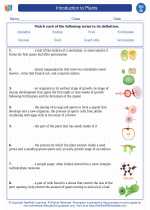Biogeochemical Cycles
Biogeochemical cycles are pathways through which essential elements and compounds such as carbon, nitrogen, phosphorus, and water are circulated in the environment. These cycles involve both biotic (living organisms) and abiotic (non-living) components of the Earth's ecosystems.
Types of Biogeochemical Cycles
There are several major biogeochemical cycles, including:
- Carbon Cycle: Involves the movement of carbon through the atmosphere, hydrosphere, lithosphere, and biosphere.
- Nitrogen Cycle: Involves the conversion of nitrogen gas into forms that can be used by living organisms, and its return to the atmosphere.
- Phosphorus Cycle: Focuses on the movement of phosphorus through the Earth's crust, water, and living organisms.
- Water Cycle: Involves the continuous movement of water between the atmosphere, land, and oceans through processes such as evaporation, condensation, and precipitation.
Key Processes in Biogeochemical Cycles
Each biogeochemical cycle involves specific processes that contribute to the movement and transformation of the elements or compounds involved. These processes include:
- Photosynthesis: In the carbon cycle, plants and other photosynthetic organisms convert carbon dioxide into organic compounds.
- Decomposition: Decomposers break down organic matter, releasing nutrients back into the environment in the nitrogen and phosphorus cycles.
- Nitrogen Fixation: Certain bacteria convert atmospheric nitrogen into forms such as ammonia in the nitrogen cycle.
- Weathering: The breakdown of rocks and minerals releases phosphorus into the soil and water in the phosphorus cycle.
- Evaporation and Transpiration: These processes move water from the Earth's surface into the atmosphere in the water cycle.
Human Impact on Biogeochemical Cycles
Human activities, such as burning fossil fuels, deforestation, and the excessive use of fertilizers, can disrupt biogeochemical cycles. This can lead to environmental problems such as climate change, eutrophication, and water pollution.
Study Tips
To effectively study biogeochemical cycles, consider the following tips:
- Review and understand the key processes involved in each cycle.
- Make use of diagrams and flowcharts to visualize the movement of elements and compounds in each cycle.
- Explore case studies or examples of how human activities impact biogeochemical cycles.
- Test your understanding through practice questions and quizzes.
By mastering the concepts and processes involved in biogeochemical cycles, you'll gain a deeper understanding of how essential elements and compounds are recycled and distributed in the environment.
.◂Biology Worksheets and Study Guides High School. Introduction to plants
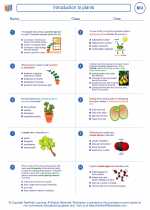
 Worksheet/Answer key
Worksheet/Answer key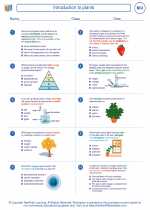
 Worksheet/Answer key
Worksheet/Answer key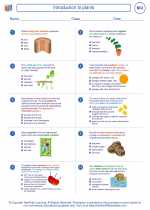
 Vocabulary/Answer key
Vocabulary/Answer key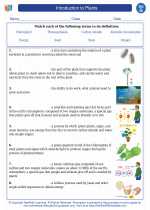
 Vocabulary/Answer key
Vocabulary/Answer key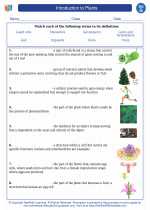
 Vocabulary/Answer key
Vocabulary/Answer key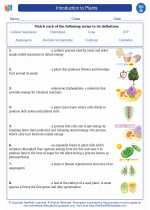
 Vocabulary/Answer key
Vocabulary/Answer key
 Vocabulary/Answer key
Vocabulary/Answer key